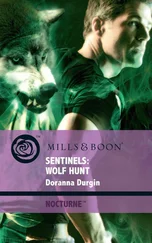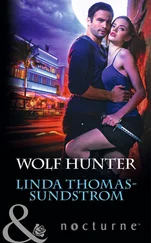Armand Cabasson - Wolf Hunt
Здесь есть возможность читать онлайн «Armand Cabasson - Wolf Hunt» весь текст электронной книги совершенно бесплатно (целиком полную версию без сокращений). В некоторых случаях можно слушать аудио, скачать через торрент в формате fb2 и присутствует краткое содержание. Год выпуска: 2012, Издательство: Gallic Books, Жанр: Старинная литература, на английском языке. Описание произведения, (предисловие) а так же отзывы посетителей доступны на портале библиотеки ЛибКат.
- Название:Wolf Hunt
- Автор:
- Издательство:Gallic Books
- Жанр:
- Год:2012
- ISBN:нет данных
- Рейтинг книги:5 / 5. Голосов: 1
-
Избранное:Добавить в избранное
- Отзывы:
-
Ваша оценка:
- 100
- 1
- 2
- 3
- 4
- 5
Wolf Hunt: краткое содержание, описание и аннотация
Предлагаем к чтению аннотацию, описание, краткое содержание или предисловие (зависит от того, что написал сам автор книги «Wolf Hunt»). Если вы не нашли необходимую информацию о книге — напишите в комментариях, мы постараемся отыскать её.
Wolf Hunt — читать онлайн бесплатно полную книгу (весь текст) целиком
Ниже представлен текст книги, разбитый по страницам. Система сохранения места последней прочитанной страницы, позволяет с удобством читать онлайн бесплатно книгу «Wolf Hunt», без необходимости каждый раз заново искать на чём Вы остановились. Поставьте закладку, и сможете в любой момент перейти на страницу, на которой закончили чтение.
Интервал:
Закладка:
Luise agreed. A neighbour told us that Teyhern’s parents died of consumption in 1800 and that they left almost nothing to their children. And most people who knew Teyhern said that he was a spendthrift. He dressed according to the latest fashion, went often to restaurants or the opera, often visited antiquarians to buy works of art ... He was described as a misanthrope, always on his own, thinking only of himself. His work colleagues thought he came from a rich family, while his few friends imagined that he had an important post at the ministry and commanded a large salary/
‘So where did all his money come from?’
Relmyer was leaning against the table, his hands grasping the edge as if he would have liked to crush it.
‘He knew what happened to those young boys whose names he added to the military registers and exacted money for that/
‘No.' Luise objected. ‘He was already rich before joining the Ministry of War. He began to spend money hand over fist when he was still employed by the Ministry of Finance. After his trial many people thought he was guilty.'
‘Who was his lawyer?’ asked Margont.
‘Rudolph Rinz. But I crossed him out because he’s nearly sixty now. The trial was short. The prosecutor complained about the verdict. But the matter never went any further.’
‘What is the name of the judge?’
‘Vinzenz Knerkes. But it can’t be him either.’
Vinzenz Knerkes’ name was crossed out on a page covered in notes.
‘Why?’
‘Because it’s impossible.’
‘Why do you say that?’ Margont pressed her.
‘I’ve often heard him spoken of, always in a positive way. He’s respected by his peers. He has the reputation of judging the guilty harshly and he’s particularly severe on anyone who harms children or young people.’
Margont recalled the smiles the assassin carved on the faces of his young victims. Because they had been locked away for days and deprived of food and water, they could not defend themselves. That gave their tormentor the impression that they accepted the cruelty he inflicted on them. And in a way, the mutilation also created the impression that the young men had consented to their treatment. Perhaps the murderer did feel guilt. A guilt so intense, so destructive that he tried to exorcise it with his tactic of weakening his victims and then faking their smiles? ‘Perhaps the judge doubly condemns people who make young people suffer because he’s punishing them for their crimes and also for his own. One culprit escapes justice but another pays double. The assassin thus tries to ease the guilt racking him.’
This remark met a lively response. Lefine shook his head, too down to earth to accept such an abstract explanation. Luise refused to entertain the thought that a judge could be culpable. As for Relmyer, he was lost in the depths of his own reflections.
‘What age is Knerkes?’ asked Margont.
Luise was distraught. She had devoted so much time to her investigation and now Margont was putting his finger on one of the blanks in her research.
‘I didn’t find out about him ... I thought he was above all suspicion ... He must be more than forty. Yes, in fact he could be the right age ...’
‘A judge would be exempt from service in the Landwehr, otherwise the judicial system would not be able to function. On the other hand, as a representative of the Austrian state, he would not be able to escape joining the Viennese Volunteer regiment when the war came to the gates of the capital.’
‘Our judges always come from good families,’ added Luise.
‘So they are all made subaltern officers, even if they do not have a military background. And a judge is a prestigious position. Kn-erkes would have had enough authority to convince other officers of the Landwehr and some Viennese Volunteers to organise the ambush we were victims of Everything tallies with what we know about the murderer! Hermann Teyhern embezzled money: he was guilty. The judge certainly knew that, but against all expectation he declared him not guilty. Why? Perhaps he was paid to let him off. Then when Teyhern started working on the army registers, Knerkes decided to make him falsify them. Teyhern could not risk refusing - he was at Knerkes’ mercy. At the moment I think Knerkes is the prime suspect. Let’s show his portrait to someone who knows him/
‘Madame Blanken met him sometimes,’ announced Luise. ‘She held him in high regard because he had the reputation of championing children and young people. Lukas, I know when you said that someone had kidnapped you and Franz, Madame Blanken told Knerkes. She thought his help might be useful ...’
Margont’s expression hardened. ‘So without meaning to, Madame Blanken may have caused Franz’s death. Because if Knerkes is the culprit, he hurried back to Franz while Lukas and the rescue team were losing their way in the forest. It’s even possible that his position helped him to sabotage the police inquiry by setting them off on a false trail. Let’s go and talk to Madame Blanken.’
Madame Blanken confirmed that the portrait was of Judge Knerkes, but she refused to believe that he was responsible. She did agree, however, to give them his address. Knerkes was a widower and lived alone quite nearby in the village of Radlau, on the other side of the Danube.
CHAPTER 34
KNERKES rode alone across the fields. He smiled to himself, overjoyed still to be alive.
When the Archduke had ordered the retreat the day before, the regiments of professional soldiers had formed powerful marching columns, protected by the cavalry. But several battalions of the Landwehr and the Volunteers had dispersed, shedding deserters in droves. Knerkes had melted into the stream of the thousands fleeing.
He had hidden in a wood, waiting patiently until nightfall to let the Austrian army move far away. He had put on the civilian clothes that he had kept for this purpose. Having the rank of captain entitled him to a horse, but as he was a Volunteer the army had not yet provided him with one, as they were unable to equip such a large number of combatants. He therefore used his own mare and so there was nothing to indicate that he was an Austrian officer. From now on he would pass himself off as a civilian who had come home to collect his belongings before leaving to escape the effects of war.
At nightfall, he had cautiously set off. He had skirted north-west round the French army, watching the immense spread of the fires by their bivouacs. The wind carried snatches of the songs of the victorious soldiers. He lost time because of his wide detour and by daybreak he had still not arrived home. He knew that the hussars and chasseurs would pursue the Austrians during the day, so from dawn onwards he had been forced to move slowly. He had more or less succeeded in keeping out of the field of action of the two armies, but even so, he was careful only to move from one hiding place to the next. He hid himself in the woods, scrutinising his surroundings, looking out for the next wood, or a deserted farm ... As soon as the coast was clear he would hurry towards his new hiding place. He had to wait a while, trapped in a thicket, as French hussars deployed in line passed in the distance. They were sweeping a meadow strewn with bodies, looking for the remains of one of their superior officers.
Finally Knerkes found himself far enough north-west of the battlefield to avoid the possibility of bumping into a platoon of cavalry, and he therefore trotted straight to Radlau.
The village was deserted. The fighting had not reached here, but Knerkes did not let down his guard. He might still come upon a deserter or thieves pillaging the evacuated houses.
He considered his position. Lukas Relmyer would never give up searching for him, and that thought appalled him. What could be worse than to have someone relentlessly tailing you? Besides, Tey-hern had told him that the army had found out that he had falsified the military registers. The naive fool had wanted to blackmail him! A few knife strokes had soon dealt with that problem. But the military investigators would never leave it there. Teyhern had sworn that he had told them nothing, but was that true? What’s more, after his blackmail attempt, Teyhern had warned him that he had given his friends letters asking them to pass them on to the Ministry of War if he had not contacted them after a few weeks.
Читать дальшеИнтервал:
Закладка:
Похожие книги на «Wolf Hunt»
Представляем Вашему вниманию похожие книги на «Wolf Hunt» списком для выбора. Мы отобрали схожую по названию и смыслу литературу в надежде предоставить читателям больше вариантов отыскать новые, интересные, ещё непрочитанные произведения.
Обсуждение, отзывы о книге «Wolf Hunt» и просто собственные мнения читателей. Оставьте ваши комментарии, напишите, что Вы думаете о произведении, его смысле или главных героях. Укажите что конкретно понравилось, а что нет, и почему Вы так считаете.











